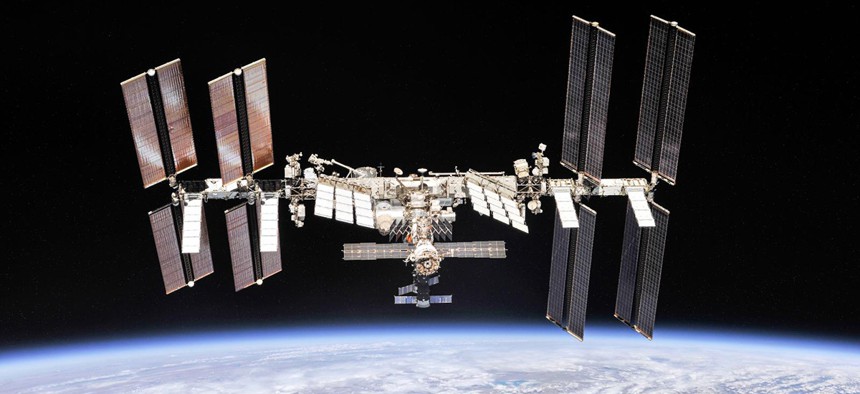Bacterial Superbugs Hitched a Ride on the International Space Station

NASA
"These species pose important health considerations for future missions."
For astronauts aboard the International Space Station, even orbiting 254 miles (408.7 km) above the planet’s surface doesn’t preclude Earthly concerns about antibiotic-resistant superbugs. Five such bacterial strains were identified on the ISS during routine environmental testing carried out by NASA, according to a new study published in the journal BMC Microbiology.
To date, no reports have shown that astronauts fell ill from sharing space with these bacteria, but researchers say they could still be affected. In the event that medical issues did result from such superbugs, treating the astronauts would be a difficult task.
“These species pose important health considerations for future missions,” the study states.
Antibiotics are supposed to be used to treat illnesses. But some infectious bacterial strains have evolved to be harder and harder to kill, putting essential modern medicines—including penicillin and tetracyclines—at risk of becoming ineffective. Health experts often say there is a two-pronged reason bacteria evolve to become resistant. The first is that physicians often overprescribe antibiotics to their patients. The second, more pressing issue is that, over the years, farmers have been overusing antibiotics on their animals to make them grow bigger faster, and to prevent them from getting sick.
The World Health Organization has for several years cautioned the medical and agricultural sectors about the rise of these so-called superbugs. Last year, it released a report asking governments around the world to establish new policies to combat the further evolution of resistant bacteria.
In the ISS study, researchers tested swabs from the station environment and found that superbug strains aboard the space station were similar to resistant strains on Earth. Based on genetic testing, the ISS strains were 79 percent likely to cause illness.
Specifically, the scientists discovered what’s called Enterobacterbacteria, which are commonly found in our digestive systems. Enterobacter don’t cause illness, but if a person has a weaker immune system, the bacteria can lead to illness and infection, including sepsis.
In a statement, NASA researchers said there’s still more to learn about how the bacteria might react in space conditions.
“Further in vivo studies are needed to discern the impact that conditions on the ISS, such as microgravity, other space, and spacecraft-related factors, may have on pathogenicity and virulence,” said Kasthuri Venkateswaran, a lead researcher on the study, in the statement.





